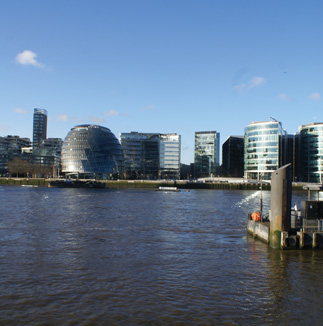Here is the second of Mark Rowe’s reflections on 2020 – a year destined to be remembered for the rest of our lives as the year of pandemic; yet much else went on that mattered both to society and to the private security sector – and went on despite or regardless of covid, and indeed had been around beforehand. Such as, the Black Lives Matter movement seeking to redress injustice based on race.
At the most recent of its quarterly telephone briefings of industry stakeholders by the UK regulator the Security Industry Authority it was striking how seriously the SIA was taking the BLM issue, in terms of what it can and should do, whether internally or as part of its wider objective of ‘protecting the public‘, while the Authority as an independent body is careful not to be seen as a lobbyist for the sector it licenses.
While security guard forces were protecting client buildings from BLM and Extinction Rebellion protesters in 2020, security figures have held their own debate about diversity and inclusion. If businesses are having their own debate, appreciating that a diverse workforce is a more creative and profitable one, how can a security contractor hope to win and keep their business if it is not doing likewise? Hence the Security Institute’s launch of its special interest group (SIG) for ‘inclusive security‘, featured in the September print edition of Professional Security magazine.
The Mayor of London, Sadiq Khan, has today published an ‘Action Plan’. City Hall (pictured) points to stats that Black Londoners have less confidence and less trust in the Met Police than white Londoners. The issues in the plan include – as in the United States, where police departments have faced ‘de-funding’ – disproportionate use of police powers, including stop and search, the use of force and the non-lethal Taser weapon; besides the police as a body being representative of London – where the Met Police can point to progress, as the Met has more than 5,000 Black, Asian and Minority Ethnic officers, up from just over 3,000 a decade ago.
Among City Hall’s proposals; body worn video (BWV) footage being made available to ‘Community Monitoring Groups’ for further scrutiny to see that officers are not relying on the smell of cannabis alone when deciding to ‘stop and search’. Academic researchers will sample of BWV footage to study the nature of stop and search interactions and the behaviour of officers.
The Met wants to see as many as 40 per cent of new recruits from Black, Asian and Minority Ethnic (BAME) backgrounds from 2022. Cressida Dick, Met Commissioner has also decided the Met will re-introduce the London residency criteria for most new recruits. For as she has said; ‘actions are more important than words’.
The background to ‘stop and search’ includes knife crime; the Met says reducing violent crime is its number one priority. The Met says it’s refreshing its stop and search training so new recruits will spend time understanding the importance of cultural awareness.
While private security does not have the search powers of police, and hence the public scrutiny, private and public alike have to know how to de-escalate conflict situations.
Much else applies – awareness (how to give training in it – including for SIA-badged officers?), and (customer) service, externally; and internal recruitment and bringing on of talent.
For the Commissioner’s statement in full visit the Met Police website.
Mayor of London, Sadiq Khan, said today: “In London, we pride ourselves on a being a beacon of diversity and a city that is both fair and inclusive, but the Black Lives Matter protests in the summer, which followed the tragic killing of George Floyd, highlighted how much more we have to do to improve trust and confidence among the Black community in our public institutions.
“Through the development of this Action Plan, we’ve listened and responded to the continued frustrations of Black Londoners, who are concerned about the disproportionate use of some police powers. It’s simply not right that Black Londoners have less trust and confidence in our police service and it’s something I am determined to resolve.
“The Stephen Lawrence report was a landmark moment in the history of race relations in our country. It had a transformative effect on policing and it’s clear the Met is a very different police service to the one it was 20 years ago. There is no question that our police officers work extremely hard to keep us safe and the Met has made improvements to become a police service more reflective of the city it serves. But more must be done – and will be done through this Action Plan – properly to recognise and address the impact that some police tactics used disproportionately on Black people is having.
“This starts with involving communities and ensuring they have proper oversight and scrutiny of stop and search, the use of Tasers and the use of force, as well as in the training of new police officers so they can better understand the trauma that the disproportionate use of police powers can have on Black Londoners.
“We need all communities in London to have trust in the use of police powers as the Met goes about the vital work of tackling crime. As a result, the whole city will be a safer place for all Londoners.”










